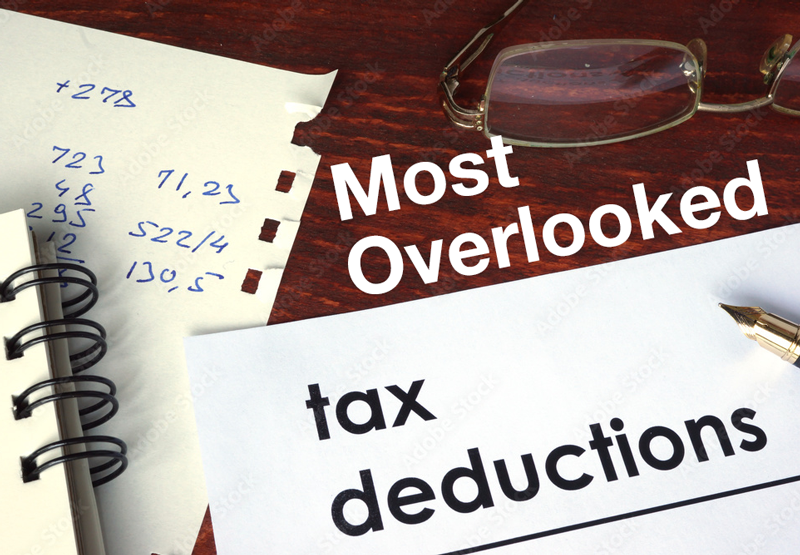Most Overlooked Tax Deductions
Parking and Tolls
Most small business owners that use their vehicles in their business know there are two methods of expensing automobile costs: the direct method, which totals the actual costs of operating the vehicle multiplied by the business percentage; and the standard method which takes the total business miles driven times a rate per mile set by the IRS. Both methods allow parking and tolls. Parking is considered rent of a space for your car for an amount of time. Tolls are a charge to drive on a particular section of a highway. Both tolls and parking are charges independent of the method used.
Allocated Interest
Most small business owners are familiar with allocated mortgage interest because it is used in the Office in the Home deduction. Interest is a charge on the use of capital. Therefore, the expense of that interest would follow the use of the funds. For instance, if a Heloc is taken out on your residence to fund a business, then the total interest charge should be expensed by that business. The same applies to interest on a car loan; the same business percentage used for your auto expense should be applied to the auto loan interest. If credit cards are used for business, make sure to expense the business portion of that interest to the business.
Total Cost of Self-Employed Health Insurance
Most small business owners and contractors are very familiar with the Self-Employed Health Insurance deduction that allows the small business owner or contractor to write off 100% of health insurance premiums. But, are you deducting the full amount allowed by the IRS? Did you know that self-employed health insurance includes the cost of Medicare and long-term care insurance? Self-employed health insurance also includes the costs of the insurance for a spouse or dependent. And here is one more add on to the expense of self-employed health insurance: self-employed health insurance also includes the costs of insurance for a non-dependent child under the age of 27.
Educator Costs
The IRS still allows an above the line (non-itemized deduction) for eligible educators of up to $300 in qualified expenses. You’re an eligible educator if, for the tax year, you’re a kindergarten through grade 12 teacher, instructor, counselor, principal or aide for at least 900 hours a school year in a school that provides elementary or secondary education as determined under state law. Qualified expenses are amounts you paid or incurred for participation in professional development courses, books, supplies, computer equipment (including related software and services), other equipment, and supplementary materials that you use in the classroom.
Itemized Deductions Most overlooked
If you itemize your deductions, you have an opportunity to ferret out additional expenses that may be used to lower your taxes further.


